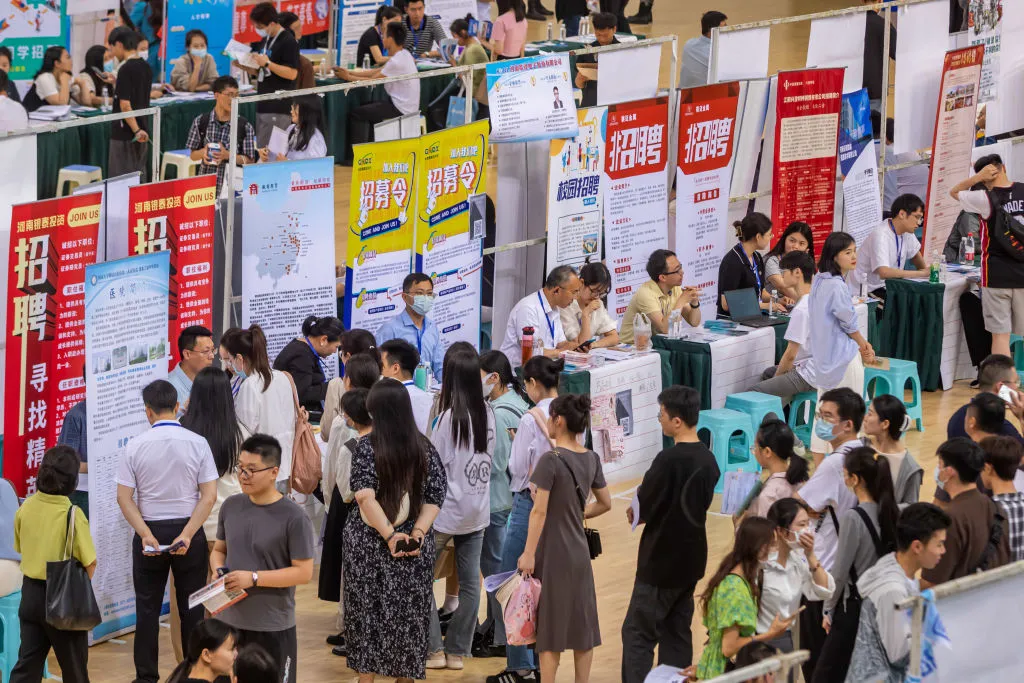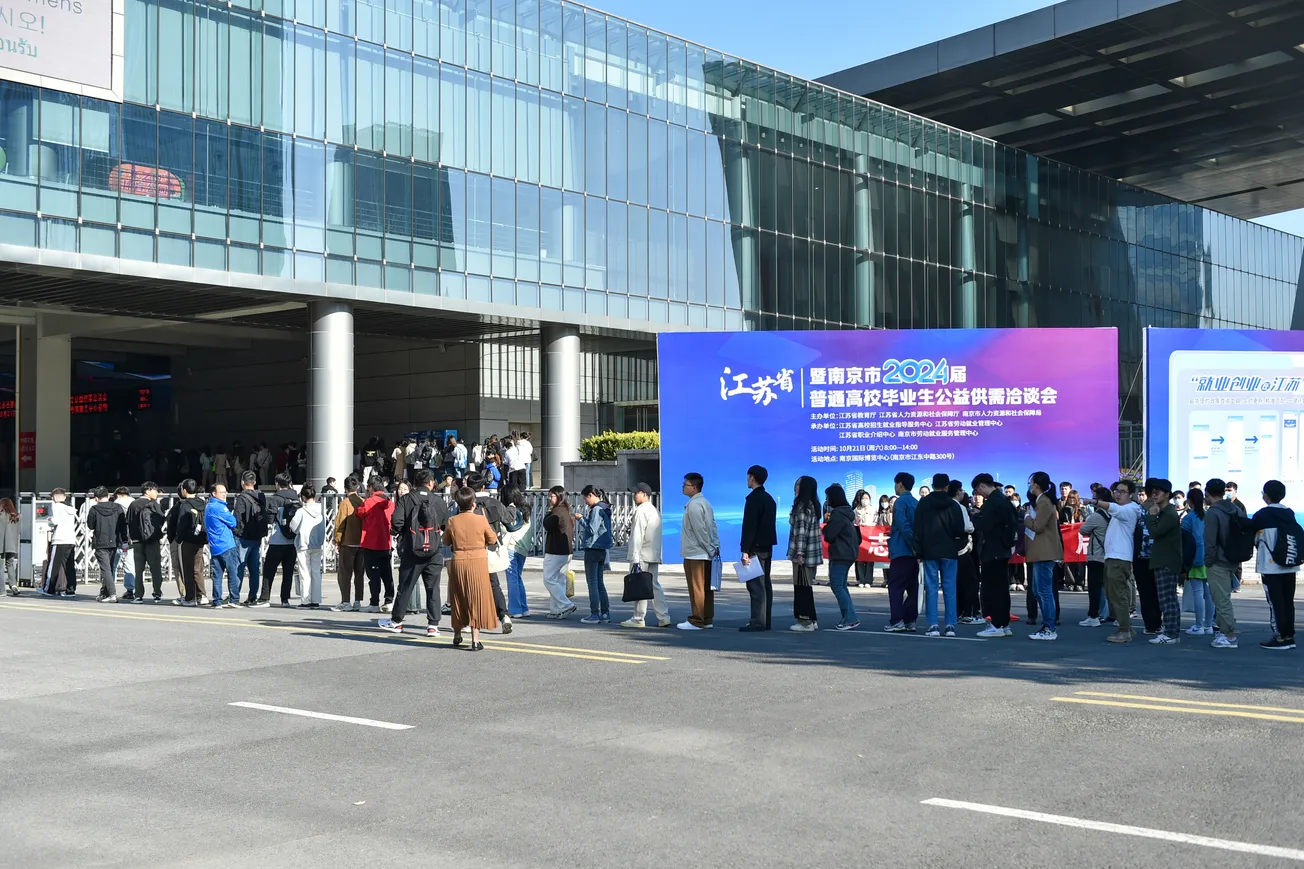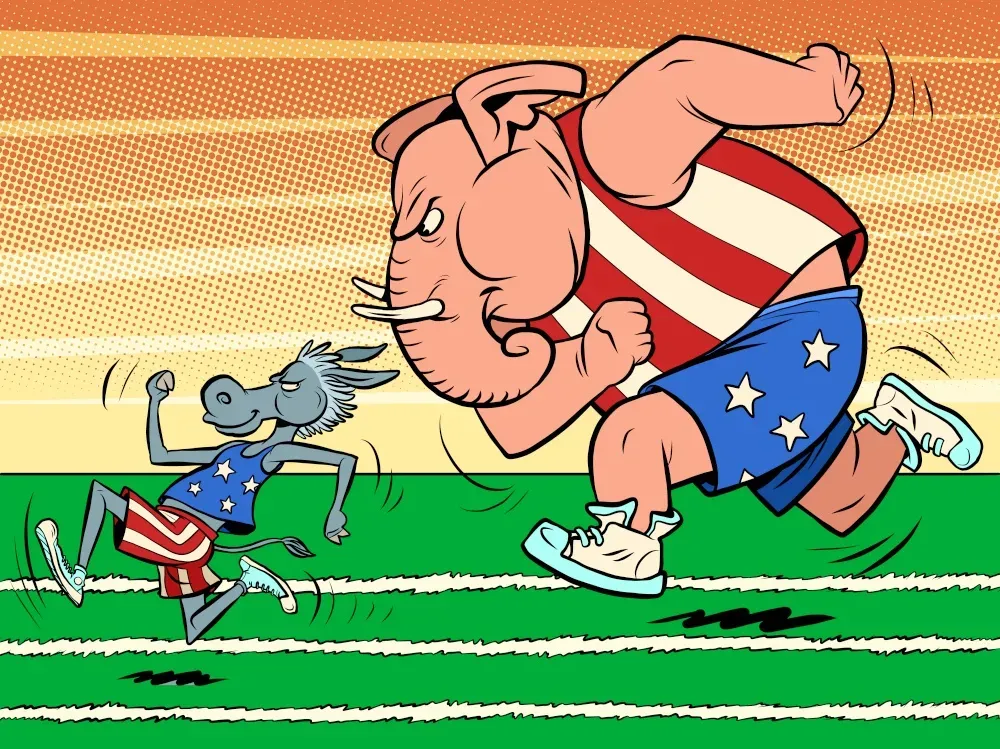The Chinese Communist Party rarely broadcasts unfavorable news, much less reveals the grimness of the situation. Therefore, the recent revelations regarding unemployment among Chinese youth point to the gravity of the problem.
Beijing reported that unemployment among Chinese youth has risen above 20%. It has been climbing steadily over the past few months. Official reports posted joblessness among those aged 16 to 24 at 20.4 in April and 20.8 percent in May. Around 11.6 million fresh graduates hit China's job market in June, and unemployment rose to 21.3%.
But, China is well known for manipulating data and fabricating favorable numbers. Though Beijing is likely to blame the Covid-19 pandemic (which originated in Wuhan, China), the global slowdown, and various other factors, independent reports estimate that the unemployment crisis had begun before the coronavirus brought the world to a standstill. Citing the trade war with the U.S., the slowing manufacturing sector, and the shrinking Chinese economy, some estimates suggest that real unemployment rates hovered around 22 percent in 2018.
A Degree Of Involvement
The actual rate of joblessness may be much higher than what is being reported now. It is commonly known that universities and educational institutions contribute to data manipulation to ensure enrollment and revenues.
Scrapping of the system that allocated jobs to college graduates and embracing a market-driven approach to employment, in 1998, led to a sharp decline in job opportunities for graduates. To remedy the situation, a 2004 legislation by the Ministry of Education linked the educational institutions' fate to their graduates' employment status. That is, if graduates of a college struggled to find suitable placements, it would affect future enrollments and, consequently, its revenue stream. The legislation was intended to incentivize schools to bring out skilled, job-market-ready graduates. Instead, educational institutions are now withholding degrees and diplomas to protect their future until the students find suitable jobs.
Drained from the pandemic, many are ill-equipped to handle the grueling work culture. The '996' (work from 9:00 am to 9:00 pm, six days a week) schedule was already causing burnout and untold stress. Even the Labor Ministry's intervention has brought little change to the situation.
Even as President Xi urges the youth to "Eat bitterness," meaning to become gritty and work hard in the face of struggles, the young Chinese are opting for "Lying flat," wherein they steer clear of ambitious goals and prefer to "simply eke out an existence while exerting the bare minimum of effort."
Economics Of Joblessness
It's a vicious cycle, one that is unlikely to end soon. Larry Hu, chief economist for the Macquarie Group, says, "Corporates are reluctant to hire because of soft consumer demand, while consumers are reluctant to spend because of [a] weak labor market."
China's second-quarter GDP increased by 6.3% a year ago, falling short of estimates of a 7.3% gain.
The Chinese economy is yet to recover from the draconian measures adopted to achieve the Zero-COVID policy. With global demand for goods expected to weaken further, China must rely on boosting domestic consumption. In efforts to stimulate the economy, short-term interest rates have been slashed.
A shrinking economy, sky-high local government debt, the real estate sector yet to recover from the bust, and the manufacturing sector struggling to find customers are all adding to Beijing's woes. The global slowdown, high energy costs, and the rivalry with its biggest trading partner, the U.S., are other factors that tie China down.
Working On It
To turn the tide, Beijing has put into action a comprehensive 15-point plan. It aims to subsidize small and medium-sized enterprises to incentivize recruiting college graduates. The government is actively encouraging state-owned enterprises to participate in this initiative by hiring fresh graduates. Furthermore, aspiring entrepreneurs are expected to receive valuable support to kick-start their ventures, fostering a culture of innovation and self-employment.
The disclosure of the unemployment numbers (how much ever whitewashed they may be) as one-in-five among the youth confirms that the crisis is at a tipping point. Beijing witnessed rare street protests against the Zero-COVID lockdown, forcing the government to abandon the policy. The Communist Party would much rather avoid another social unrest. Disgruntled youth are not conducive to the longevity of authoritarian rulers and regimes.
Like our insights? Show your support by becoming a paid subscriber!









